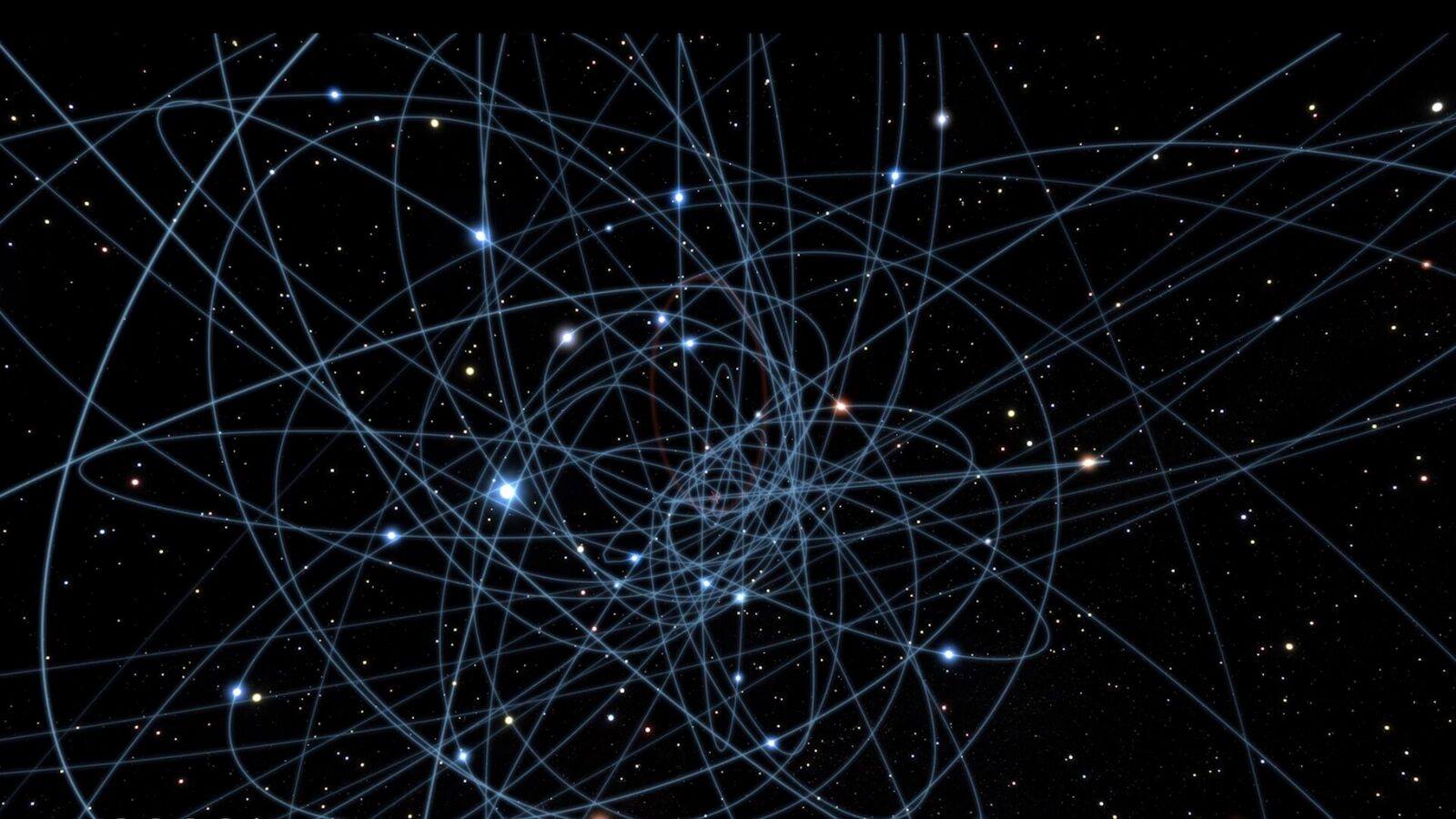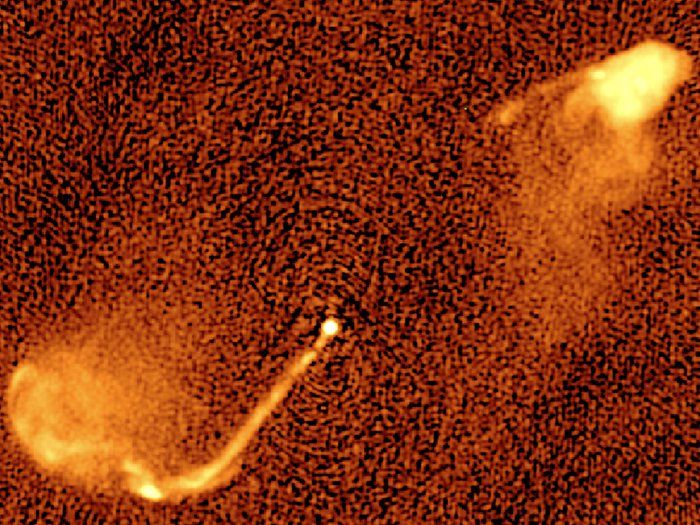There is a monster at the heart of our Milky Way galaxy that eats stars. If it’s not a black hole, astronomers don’t know what else it could be: https://nyti.ms/2RrvazD

There is a monster at the heart of our Milky Way galaxy that eats stars. If it’s not a black hole, astronomers don’t know what else it could be: https://nyti.ms/2RrvazD
Telescopes just got the best-ever look at gas circling the edge of a supermassive black hole — a point of no return just before the event horizon.
Stephen Hawking: “My goal is simple. It is a complete understanding of the universe, why it is as it is and why it exists at all.”
What you need to know about Black Hole Entropy and Soft Hair.
Researchers from the Moscow Institute of Physics and Technology (MIPT), Aalto University in Finland, and ETH Zurich have demonstrated a prototype device that uses quantum effects and machine learning to measure magnetic fields more accurately than its classical analogues. Such measurements are needed to seek mineral deposits, discover distant astronomical objects, diagnose brain disorders, and create better radars.
“When you study nature, whether you investigate the human brain or a supernova explosion, you always deal with some sort of electromagnetic signals,” explains Andrey Lebedev, a co-author of the paper describing the new device in npj Quantum Information. “So measuring magnetic fields is necessary across diverse areas of science and technology, and one would want to do this as accurately as possible.”
Scientists have previously suspected supermassive black holes can merge together, and have seen signs of these cosmic collisions on a smaller scale. Now new research backs up the hypothesis – and shows evidence that it could be happening all across the Universe.
Astronomers studying detailed radio maps of jet sources – powerful beams of ionised matter thrown out by black holes – have found a surprisingly high number of scenarios that matched patterns consistent with binary black holes (two black holes orbiting each other).

Jet stream radio map. (M. Krause/University of Hertfordshire)
MANILA, Philippines — A mobile and SMS application developed by IT professionals Revbrain G. Martin, Marie Jeddah Legaspi, and Julius Czar Torreda to help fishermen receive real-time weather, sunrise and sunset, wind speed, and cloud coverage to plan their fishing activity, and an emergency checklist kit app was developed by students Jeorge Loui P. Delfin, Bluen Ginez, Samuel Jose, Rainier Garcia Narboneta, and Eugenio Emmanuel A. Araullo for disaster preparedness won the NASA Space Apps Challenge on October 19–21 at De La Salle University in Manila, Philippines, in partnership with the Embassy of the United States of America and PLDT.
Other projects and solutions developed are games using images from the Hubble Space Telescope, augmented reality mobile app to tell a story of the changes in the Arctic and Antarctic ice, artificial intelligence app helping scientists confirm the habitability of exoplanets, and story-based game using NASA Earth imagery.
They joined together with teams of coders, scientists, designers, storytellers, makers, builders, technologists, thinkers, designers, entrepreneurs, and everyone around the globe working together in a 48-hour sprint to develop solutions to some of the most pressing challenges on Earth and in space, using NASA resources and data.
Tags: NASA, space, Space Apps
Many of the objects NASA and other scientific bodies choose to study in space are incredibly old, but that’s not the case with Kes 75. Located a mere 19,000 light years from Earth, Kes 75 is a ultra-dense chunk of a star that went supernova, and now scientists are calling it the youngest known pulsar in the Milky Way galaxy.
In a new post on its website, NASA explains how the pulsar was detected and shows off a pretty stunning image of what it looks like from our vantage point.
The pulsar is roughly 500-years-old and was spotted with the help of NASA’s Chandra X-Ray Observatory.
Astronomers have managed to locate the youngest pulsar in the Milky Way, NASA announced yesterday. Dubbed PSR J1846-0258, the pulsar was spotted inside one of our galaxy’s supernova remnants — found 19,000 light-years away from our planet, in the Aquila constellation (The Eagle).
This exciting discovery — first detailed in a study published earlier this year in The Astrophysical Journal — could shed more light into supernova explosions and the new beginnings that arise from the death of a stellar giant.
Continue reading “Milky Way’s Youngest Pulsar Found 19,000 Light-Years From Earth” »